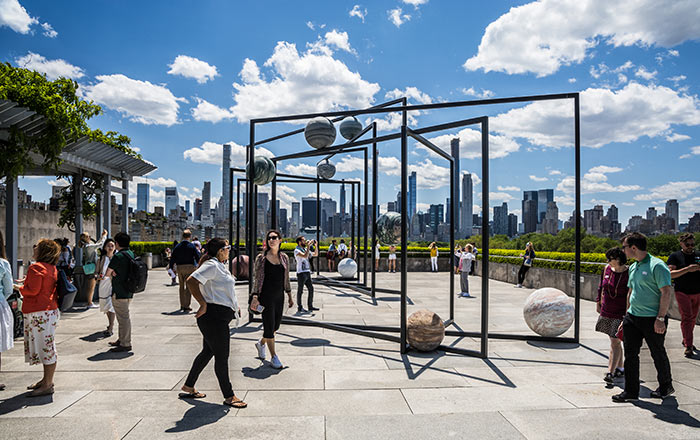Ikroti
Nicholas Hlobo South African
Not on view
Hlobo, whose grew up under Apartheid in South Africa, emerged in the 2000s as a dynamic installation artist who enacted compelling, ritualistic performances within environments he constructed out of textiles, ribbons, and other materials. His best sculptures, such as this example, combine the artist's interests in mutability, mythology, and ritual with natural materials and craft. They also hold in tension supposedly masculine (leather, wood, metal) and feminine (satin ribbons) materials and the ways in which they might disrupt concepts of gender a rigid, binary system.
In Ikroti (which roughly translates to "hero" from Hlobo’s native Xhosa), Hlobo added handsewn leather tentacle-like forms and a stretched-leather horn to a gnarled, found tree trunk. The work’s form references a number of storylines for the artist: the long migration of eels from their shoreline habitats to spawning beds in the deep ocean, for example, or the displacement of large populations of people throughout centuries of African history.
